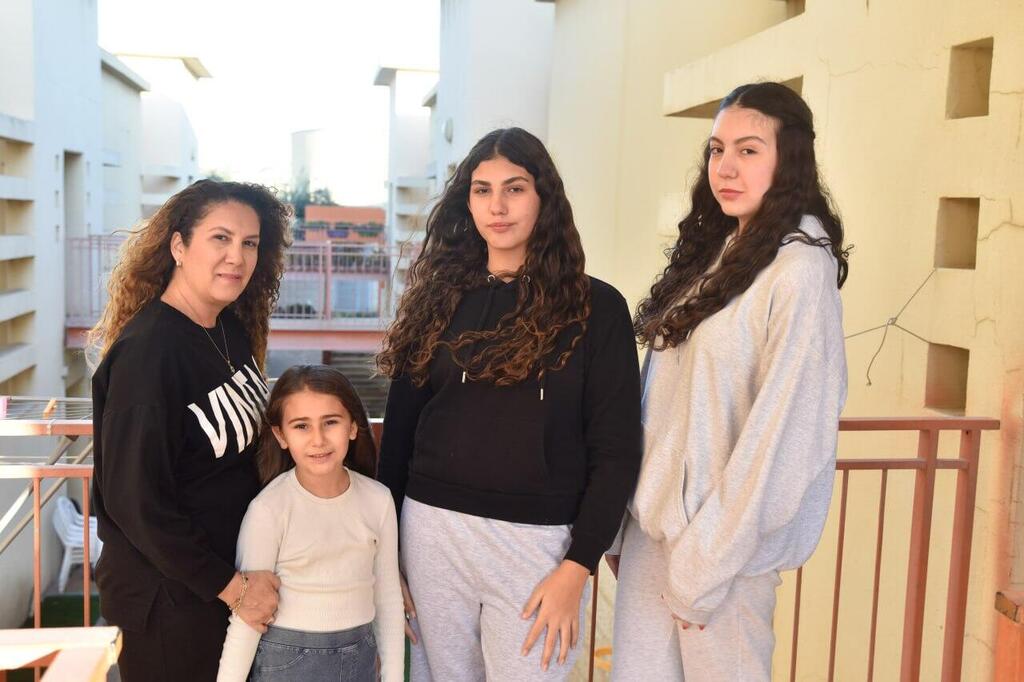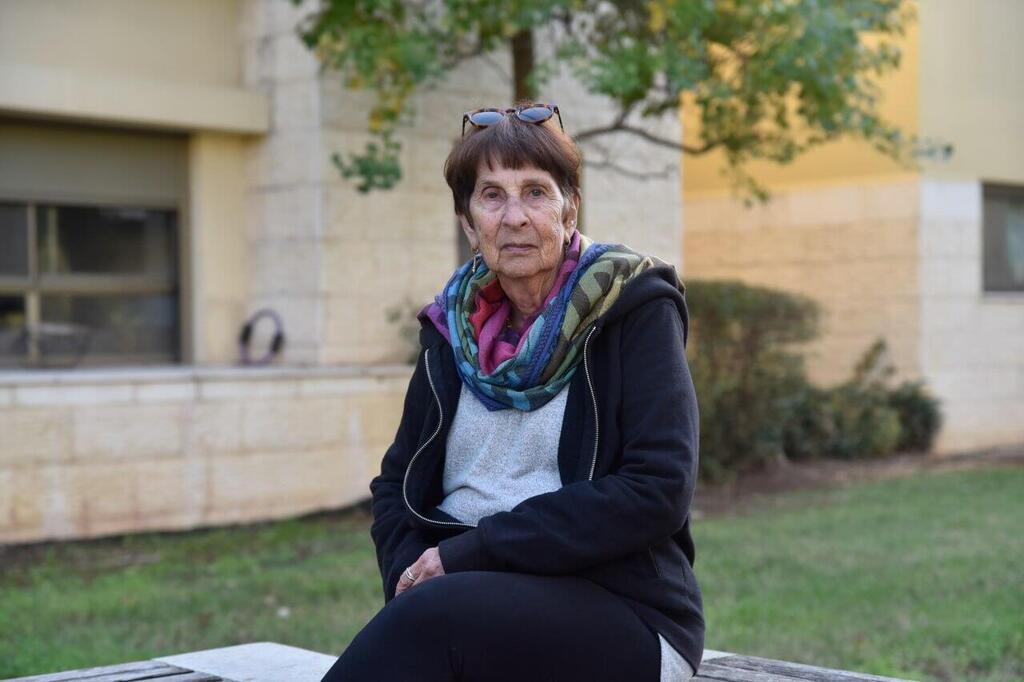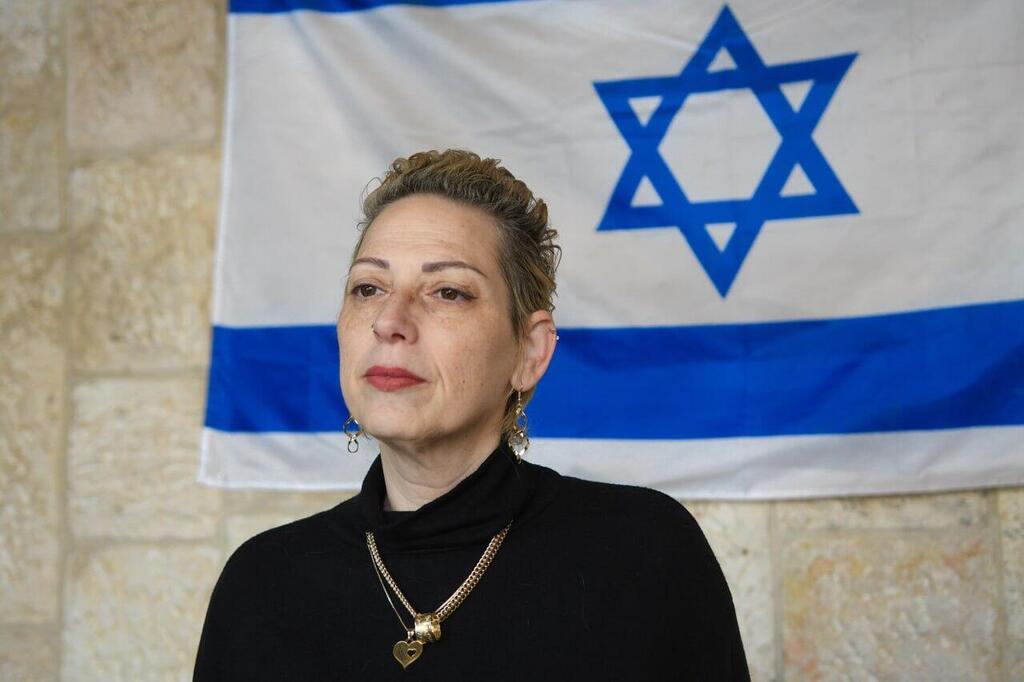Getting your Trinity Audio player ready...
Fourteen months after Hezbollah joined Hamas in the fight against Israel, a cease-fire took effect at 4:00 a.m. on Wednesday, announced by Prime Minister Benjamin Netanyahu in a pre-recorded televised statement. But for residents who were evacuated from their homes in northern Israel over a year ago, the agreement offers little reassurance. Many are rejecting its terms outright, claiming it fails to provide the basic security they deserve.
Many families from northern Israel are demanding to stay in their evacuation locations until at least the end of the school year, unwilling to uproot their children from their current schools.
IDF performing an exercise at the northern border
(Video: IDF Spokesperson's Unit)
"From the moment we were evacuated, we’ve been dreaming of going back home to Kiryat Shmona," Yifat Elmalich, a mother of three, told Ynet. "But we want to return with full security, to give our kids freedom, to heal emotionally, and to bring them back mentally healthy."
She shared the heavy fears weighing on her and the difficulty of making a decision. "We don’t want to go back to a life of constant fear – of rockets falling or terrorists infiltrating. This agreement feels weak and not in our favor. I have three daughters in different schools, and just as hard as it was to uproot them from the city, it will be just as hard to uproot them from here in the middle of the school year. For now, we’re leaning toward staying put. Our house was damaged by shrapnel, and we still don’t feel fully safe in the city."
Hofit Mor, who was evacuated with her husband and four children from Moshav Kfar Yuval in the Upper Galilee, is also skeptical. "I’m against the agreement. It feels like it’s bringing us back to square one, to where we were before the war," she said. "Right now, I’m staying in the Jezreel Valley and letting my children finish the school year here so they don’t have to go through more upheaval. Beyond that, our house is only 100 yards from the border. I was born and raised in Kfar Yuval, but after seeing the disaster in the Gaza border region, we realized the danger we were living in. Under these conditions, I’m not going back."
Tali Hassin, also from Kfar Yuval and a mother of four, is renting an apartment in Afula, where her children are enrolled in local schools. "Our home in the moshav took a direct hit; it’s uninhabitable. There’s no water, no electricity, some of the walls are destroyed, and the entire house is covered in soot. On one hand, the kids want to go back to their friends and to their familiar spaces at home. But on the other hand, there’s immense anxiety about returning. Once the house is repaired and we can organize our belongings, there’s a chance we’ll consider it – of course, only if there’s peace and security. As it stands, I’m not going back. I have nowhere to live, and there’s not enough quiet to feel safe."
Michael Biton, 77, a resident of Kiryat Shmona for 67 years, has been staying in the student dormitories at Yezreel Valley College. "My wife and I, along with our three children and 13 grandchildren – all residents of Kiryat Shmona – are now living near each other in the dormitories. Since 1967, we’ve lived under fire from Lebanon. In 1969, my wife was injured by rockets and left disabled. There was maybe a 20-year pause, but since then, Hezbollah has grown into a terror monster."
'For the residents of the north, this agreement isn’t a solution – it’s a threat'
"My wife and I will return because we have nowhere else to go," he added, "but our children won’t come back until the school year ends. My grandchildren are enrolled in schools here in the Jezreel Valley." Still, he stressed, "if the agreement is violated, we’ll have no choice but to pack our bags and leave for good.
"I lost my brother and two nephews in a bombing attack in the city in 1973. Despite that, we stayed. We love the city deeply. On holidays and weekends, all of Israel comes to visit us. In my eyes, Kiryat Shmona is the most beautiful city in the world, and I dream of returning to it. I want to live the rest of my life there in peace," he concluded.
Nava Erez, 76, from Kibbutz Hanita in the western Galilee, also has been staying in the student dormitories at Yezreel Valley College, along with her daughter and grandson. "Since yesterday, my stomach has been in knots from all the uncertainty, from not knowing what’s going to happen with my life," she said.
"My house suffered minor damage from a missile blast, but it’s still livable. The moment the community leaders tell me it’s safe to return, I’ll grab my grandson and load up all our belongings. Only the council leaders and community managers know the area and are responsible for us. If the prime minister tells me to go home, with all due respect, my peers and I will wait for their instructions."
Residents of Shlomi, evacuated over a year ago to the Royal Hotel in Jerusalem, are voicing deep fears over the new Israel-Lebanon agreement, which they believe fails to deliver real security. Among them is Inbar Ben Harush, a mother of two teenagers. Speaking to Ynet, she didn’t hold back. "This is a catastrophe for all of Israel, especially for us in the north. It’s basically saying, ‘Prepare to be conquered in the Galilee.’ Hezbollah will return to the villages in southern Lebanon, rearm, and rebuild their tunnels. It’s only a matter of time."
For Inbar, residents feel completely overlooked in the decision-making process. "The leadership doesn’t care about us. Our opinions, the opinions of our children—they mean nothing to them. Nobody asked us, nobody consulted the local authorities, and the fact is, everyone opposes this agreement. It’s going to cost us our children’s lives."
She didn’t mince words about her lost faith in those in power. "We’ve lost trust in our government and its leadership. Maybe we can still restore faith in the IDF, but the lies we’ve been told for years won’t disappear overnight. Once again, they’re blatantly lying to us, saying: ‘Go back; everything will be fine.’ I’m not buying it. We saw what they did to the poor residents in the south."
Matan Davidian, 36, shares her concerns and is even more blunt, calling the deal "a surrender agreement." "We’re going home to a situation far worse than the one we left," he said. "In the past, when there was fire from Lebanon, we responded immediately. Now, we’ll need approval from other countries, which means we won’t respond at all – we’ll just ‘contain.’ Our children can’t be human shields."
Matan pointed out that Hezbollah’s threat is far greater than just holding anti-tank missiles. "They’re firing them from villages in southern Lebanon – villages this agreement will let them return to. We’ve been warning for years that Hezbollah has a plan to invade the Galilee. Hamas just acted on their plan faster. They would’ve taken over Nahariya and Haifa. This agreement doesn’t eliminate that threat."
He also stressed the need for a proper security buffer zone in the north. "There must be a buffer zone at least 6 miles deep, controlled by the IDF, to ensure there are no rockets or tunnels. Residents of southern Lebanon saying they’ll return to their homes? They’re part of Hezbollah’s Radwan Force."
Get the Ynetnews app on your smartphone: Google Play: https://bit.ly/4eJ37pE | Apple App Store: https://bit.ly/3ZL7iNv
For the evacuees from Shlomi, the idea of returning north under the current security situation is unthinkable.
"If they tell me to go back tomorrow, I’ll take my kids and move somewhere else. Anyone with common sense would do the same," Matan declared. Inbar added, "We’re willing to stay here another year or even two if we have to, but we’ll only return when there’s real security, not just a ‘sense of security.’"
Matan called on the government to reevaluate its approach and rebuild trust. "The government needs to think carefully and restore both security and faith. For the residents of the north, this agreement isn’t a solution – it’s a threat." Inbar wrapped up with a plea. "We truly want to go back, just not like this. Let families with children in schools stay where they are. Changing schools again isn’t an option, especially not in the middle of the school year, and especially during matriculation exams. Let the kids finish the year. They’ve lost enough already – don’t make life harder for them."








